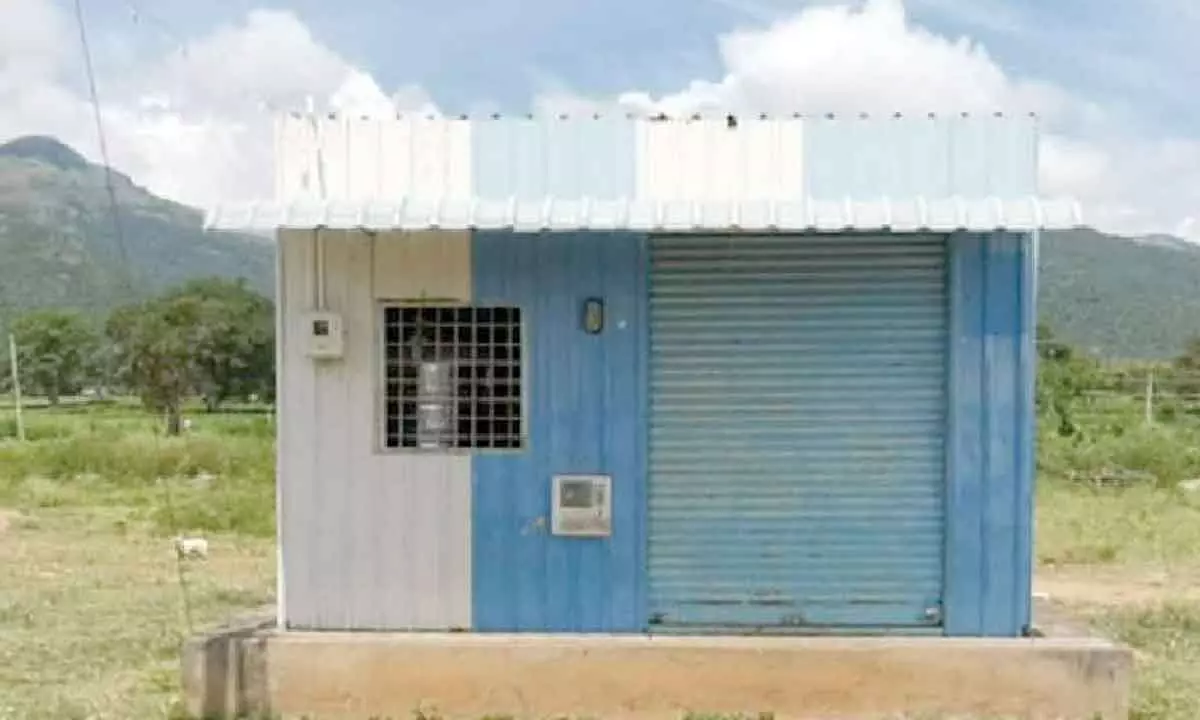Drinking water plants for Soliga tribe fall into disrepair

The issue of clean drinking water remains a major challenge for the tribal communities in Chamarajanagar district, especially in the villages inhabited by the Soliga tribes.
Chamarajanagara: The issue of clean drinking water remains a major challenge for the tribal communities in Chamarajanagar district, especially in the villages inhabited by the Soliga tribes. Despite the state government’s efforts to ensure safe drinking water in rural areas, many villages continue to struggle due to poor implementation and neglect by the authorities.
The Scheduled Tribes Welfare Department had initiated a project to set up clean drinking water units across several rural areas of Hanur Taluk nearly six years ago, with an investment of Rs 10 lakh per unit. However, a majority of these units have either not been made operational or have fallen into disrepair. Villages like Uddatti, Basavanagudi, Hiriyambala, and Kattekalupodu have drinking water plants that are rusting away, with no signs of functioning anytime soon. Problems range from lack of electricity connections and broken pipelines to inaccessible water plants overgrown with vegetation.
The tribal communities are forced to rely on borewell water, which has its own set of challenges, especially during the summer months when these wells often dry up. The situation is dire, as some residents resort to filtering and drinking water from pits, leading to health concerns. Residents also report that existing borewell taps have accumulated algae, indicating poor maintenance and posing risks of waterborne diseases.
The lack of coordination between the Scheduled Tribes Welfare Department and the local Gram Panchayats is evident, with authorities failing to ensure the maintenance and operation of these clean drinking water plants. Despite repeated requests from the residents of Hadi villages, there has been little to no action to address these issues. The community leaders have urged district authorities to take decisive action to revive and maintain these water units, emphasizing the need for clean drinking water as a basic right.
There is growing concern that the significant funds allocated by the government for clean drinking water facilities are being wasted. Without prompt action, the initiative may turn out to be a classic example of mismanagement. Local residents have requested strict directives from the Deputy Commissioner to the PDOs (Panchayat Development Officers), emphasizing the need for regular maintenance and operation of the water plants.
The lack of effective implementation of other drinking water projects, such as the Jal Jeevan Mission and the multi-village drinking water scheme, has also left these communities without reliable water sources. The government has been urged to bridge these gaps and ensure that the allocated funds are used effectively to meet the water needs of the rural tribal population.
The residents of Haadi have raised concerns over the spread of diseases due to the lack of clean drinking water. They have called upon the state government to urgently address these issues and provide a permanent solution. They stress that without clean water, the health and well-being of the community are at risk, and the decades-old struggle for basic necessities continues.
The failure to utilize government funds and resources effectively for such a critical issue highlights the need for better planning, coordination, and accountability. With the right measures, the government can still turn things around, but it will require immediate attention and a coordinated effort to ensure clean drinking water for every residents of haadis.










